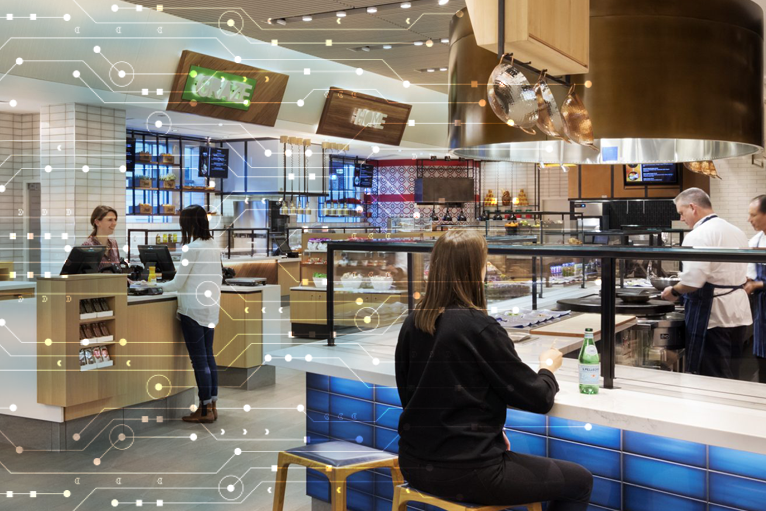The future of commercial kitchen technology is expected to be driven by advancements in automation, connectivity, sustainability, and enhanced user experience. Early adopters are seeing improvements in several areas of food service operations. A companion blog will explore how data may be leveraged to improve operations and customer experience.
Here are some key trends and developments that may shape the future of technology in commercial kitchens:
- Smart Kitchen Appliances: Commercial kitchen appliances will become more intelligent, equipped with sensors, and artificial intelligence (AI), also known as machine learning. This will enable them to optimize cooking processes, monitor food quality, and adjust settings automatically for improved efficiency and consistency.
- Connected Kitchen Ecosystems: Internet of Things (IoT) technology will connect various kitchen appliances, enabling seamless communication and data sharing. This area has been a significant challenge as the communication methods vary. Getting to a unified platform is a goal for this area. This connectivity will facilitate centralized control, remote monitoring, and predictive maintenance, leading to improved workflow management and reduced downtime.
- Robotics and Automation: Robots and automated systems will play a significant role in commercial kitchens. They can assist with repetitive tasks such as food preparation, cooking, dishwashing, and cleaning, freeing human workers to focus on more creative and complex culinary activities. Recent articles in trade publications have highlighted some of these robotic developments, such as fry stations and burger production.
- Enhanced Food Safety and Quality: Advanced sensors and imaging technologies will be integrated into commercial kitchens to monitor and ensure food safety. These technologies can detect contaminants, spoilage, or irregularities in real time, minimizing the risk of foodborne illnesses and ensuring high-quality standards.
- Energy Efficiency and Sustainability: Energy-efficient appliances, waste reduction strategies, and sustainable practices will become integral to commercial kitchen design. This includes using energy-saving equipment, intelligent power management systems, composting solutions, and eco-friendly packaging alternatives.
- Data Analytics and Optimization: Commercial kitchens will leverage data analytics to gain insights into operational performance, inventory management, and customer preferences. This data-driven approach can help optimize food production, reduce waste, and personalize the dining experience based on customer feedback and historical data. Analyzing historical data and viewing trends can more readily identify and implement improvements.
- Customization and Personalization: Commercial kitchens will increasingly cater to individual customer preferences and dietary restrictions. Technology will enable the customization of dishes, portion sizes, and ingredients, providing a more personalized dining experience while accommodating diverse nutritional needs.
It’s important to note that while these trends represent the potential future of technology in commercial kitchens the pace of adoption and implementation may vary based on factors such as cost, infrastructure, regulations, and industry demands. As technology development accelerates, the cost to implement them decreases. We are at the forefront of technological advancements that will transform the food service industry.
Do you have any questions? Leave us a message below or please send your questions by using the “Ask the Expert“
Our recommended next article would be: System Neurology of a Kitchen Ventilation System
Subscribe to kitchenventilation.com
Stay up to date by subscribing to Halton’s Commercial Kitchen Ventilation Blogs by entering your email address to subscribe and Halton will provide you with the latest information on commercial kitchen exhaust hoods, pollution control units, air handling, and safety systems. You will receive notifications of new posts by email.

